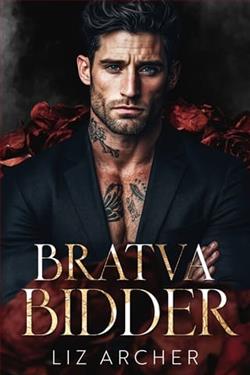Page 42 of Always
“And of course, there was the first time I asked Liam for investment advice,” he said. “Honestly, I’m surprised he’s willing to do anything with stocks with me ever again.”
“Oh,” Liam scoffed, “we all have to learn our lesson there—we’re all gamblers at first.”
“This was right when the financial crisis hit,” James said. “Washington Mutual was on the ropes, the stock had dropped all the way down to two dollars. There were rumors they’d be bought by JP Morgan, which should raise the stock up to four to six dollars minimum. I had eight hundred dollars in the bank—that was every penny of my savings. So I called Liam and I told him my plan. I said the famous last words, ‘What’s the worst that could happen?’”
“And what did I say?” Liam laughed. “I don’t even remember this.”
“You said, ‘It could go to zero’.”
“Ah! And you see, I was wrong too.”
“Why? What happened?” Aunt Molly asked.
“Well, what I didn’t know—because this was a classic example of the Dunning-Kruger effect, I was too stupid to know how ignorant I was—what I didn’t know was that there was another party at the table with WaMu and JP Morgan: the FDIC. And they decided instead of JP Morgan buying WaMu, the FDIC was just going to seize all WaMu’s assets and hand them over. So the eight hundred dollars I had invested evaporated in a moment. Less than zero.”
“At least it was only eight hundred dollars,” Liam said. “That’s a cheap lesson.”
“Absolutely,” James said. “Of course I was devastated at the time. I had wanted that money badly for…for something I wanted to get.”
Unconsciously, he had glanced for a moment at Anika’s bare left hand where it rested on the arm of her chair. And though he was still smiling and chuckling at his own foolishness, Anika wasn’t laughing anymore, because like a bolt she recalled the timing of James’s story and she understood why he had wanted money so badly.
The financial crisis had happened in 2008. James had been saving every penny because he wanted to buy a ring for her. And perhaps after the disastrous dinner with her family, he had thought that what he had saved wouldn’t be enough to get a ring that would be good enough in her eyes—or in the much more critical eyes of her father and sister.
But no ring of any kind had ever come, and not just because he’d lost the money. Because she had abandoned him shortly thereafter.
“Anyway,” James went on, “I did learn my lesson. I don’t invest in single stocks anymore, unless it’s my own company. And I always listen to Liam.”
“I’ll hold you to that when we’re partners!” Liam laughed.
“So what is this fund you’re making?” Aunt Molly asked.
“James wrote an algorithm,” Liam said. “You know most trades are made by computers these days.”
“What about AI?” Anika asked suddenly.
“AI?” Liam said curiously.
“Yes,” Anika said to James, faltering a little, “you used to say you wanted to make a true artificial intelligence—not just a program but an actual personality.”
“I’m surprised you remember that,” James said, looking slightly ruffled.
“Well, trading algorithms are a type of artificial intelligence,” Liam said.
“But it’s not a full brain,” Anika said. “It’s not an independent intelligence.”
“Who would want that?” Aunt Molly said. “Isn’t that the start of a Terminator movie?”
“That would be pretty fanciful at this point,” James said. “We’re a long way off killer androids.”
“Didn’t Einstein say that imagination is the precursor to progress, to evolution?” Anika persisted. “You told me that.”
“Well, I used to be idealistic,” James said shortly. “I’m more practical now. The algorithm is for making micro-trades, that’s all.”
Aunt Molly sensed the tension in the room, though she didn’t quite seem to understand its source. Still, good breeding taught her that she ought to change the subject.
“Liam!” she said. “Did you end up getting that Ortega sculpture we saw in the city? I’m anxious to see it!”
Liam, far from looking confused or disturbed at the turn of mood between Anika and James, instead looked quite placid. But he always seemed in a zen state, as if he thought everything would work out the way it was supposed to in the end.















